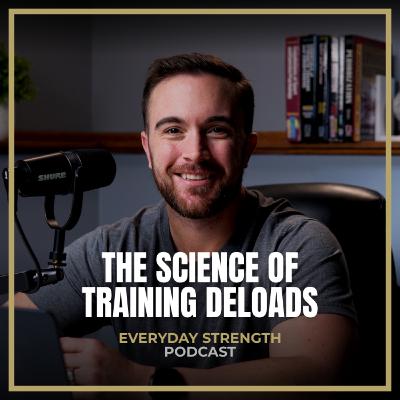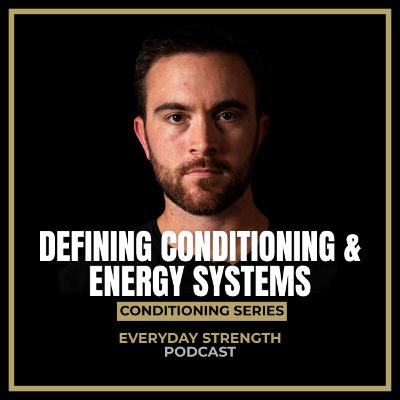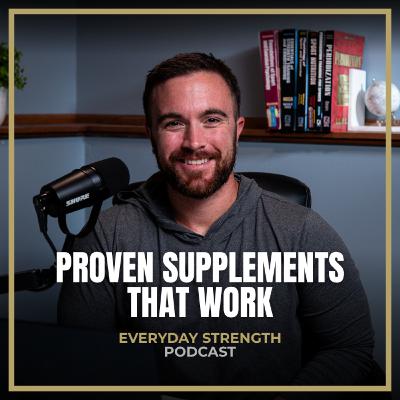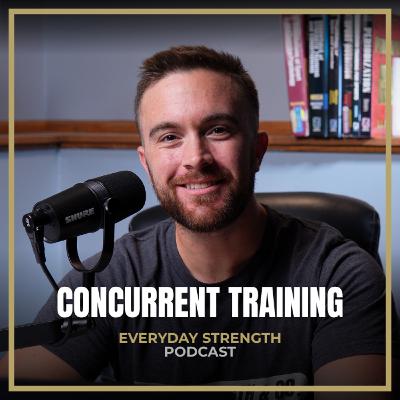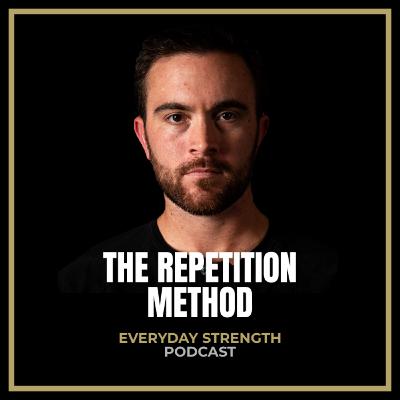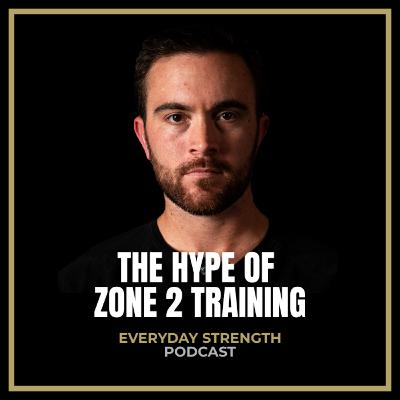The Science of Training Deloads: Managing Fatigue for Long-Term Progress
Description
Deloads are one of the most overlooked pieces of training, yet they’re essential for long-term progress, recovery, and staying healthy. In this episode, Anthony breaks down what a deload actually is, why it matters, and how everyday athletes can use it to train harder and adapt better over time. You’ll learn the physiology behind fatigue, the signs that tell you when a deload is needed, and how to run an effective and practical deload week inside any training system, including the Conjugate Method.
Read the full episode notes at hagelestrength.com
Join the Performance Edge Network to receive Anthony’s weekly newsletter.
Timestamps:
(0:00 ) Introduction and episode setup
(0:06 ) What a deload is and why it matters
(0:29 ) Why deloads get a bad reputation
(1:01 ) Programming and physiology 101
(1:58 ) General Adaptation Syndrome explained
(2:29 ) How training disrupts homeostasis
(3:00 ) Adaptation and the caffeine analogy
(3:47 ) Why soreness decreases as you get more trained
(4:04 ) Adaptation vs exhaustion
(4:46 ) Training as medicine: the Tylenol analogy
(5:45 ) Underdosing and overdosing the training stimulus
(6:09 ) Categories of fatigue
(6:40 ) Stress signaling and recovery demands
(7:13 ) Why recovery creates adaptation
(7:28 ) Nutrition context: protein, antioxidants, ice baths
(8:11 ) When recovery methods help or hurt progress
(8:35 ) Planning deloads strategically
(8:47 ) Why hybrid and everyday athletes especially need deloads
(9:02 ) Stress is stress: training, work, life, and obligations
(9:29 ) Life stress vs training stress
(10:01 ) Stagnation, fatigue, and injury risk
(10:22 ) Modern stress load and doomscrolling
(10:43 ) Why deloads aren’t optional
(11:02 ) Four systems affected by fatigue
(11:32 ) Neural fatigue explained
(12:03 ) Muscular and mechanical fatigue
(12:22 ) Tendon and ligament stress
(12:46 ) Autonomic and systemic fatigue
(13:14 ) Supercompensation explained
(13:42 ) Common deload mistakes
(14:10 ) “Deloads are only for advanced athletes” myth
(14:35 ) “I’ll lose my gains” myth
(15:02 ) Deloads reduce stress, not eliminate it
(15:18 ) Knowing when to take a deload
(15:39 ) Objective signs: bar speed, strength dips, conditioning difficulty
(16:26 ) Subjective signs: joint pain, low motivation, global fatigue
(17:29 ) Environmental stressors and predictive deloading
(18:16 ) How to run a deload week
(18:33 ) Option A: reduce intensity
(18:53 ) Option B: reduce volume
(19:27 ) How deloads apply to strength work
(19:52 ) Why PRs happen after deloads, not during
(20:11 ) Modifying conditioning during deloads
(20:24 ) Managing systemic fatigue
(20:52 ) Keeping aerobic and skill work in
(21:15 ) What to avoid during a deload
(21:45 ) Random high intensity workouts
(22:07 ) Avoiding max attempts
(22:39 ) Nutrition during deload week
(23:02 ) Movement and technique practice
(23:17 ) Expected outcomes of a deload
(23:42 ) Performance rebound after recovery
(24:19 ) Injury reduction and autonomic reset
(24:53 ) Long-term training quality
(24:58 ) How deloads work within the Conjugate Method
(25:19 ) Why variation doesn’t eliminate systemic fatigue
(25:49 ) Natural volume ebb and flow in conjugate
(26:12 ) Systemic fatigue still accumulates
(26:41 ) The body doesn’t care which method you use
(27:07 ) Fatigue from submaximal and maximal work
(27:32 ) Deload cues for conjugate lifters
(27:54 ) Neural fatigue as the silent killer
(28:25 ) Three-week waves and built-in deload structure
(28:50 ) Week-by-week coaching logic
(29:30 ) Variation as a “silent deload”
(30:09 ) Example deload timing across phases
(30:47 ) High-intensity block considerations
(31:04 ) Final thoughts on deload frequency
(31:12 ) Why deloads protect long-term progress
(31:45 ) Closing message and call-to-action
(31:58 ) Subscribe on platforms
(32:08 ) Join Performance Edge Network
(32:30 ) Final sign-off
Connect with Anthony:

